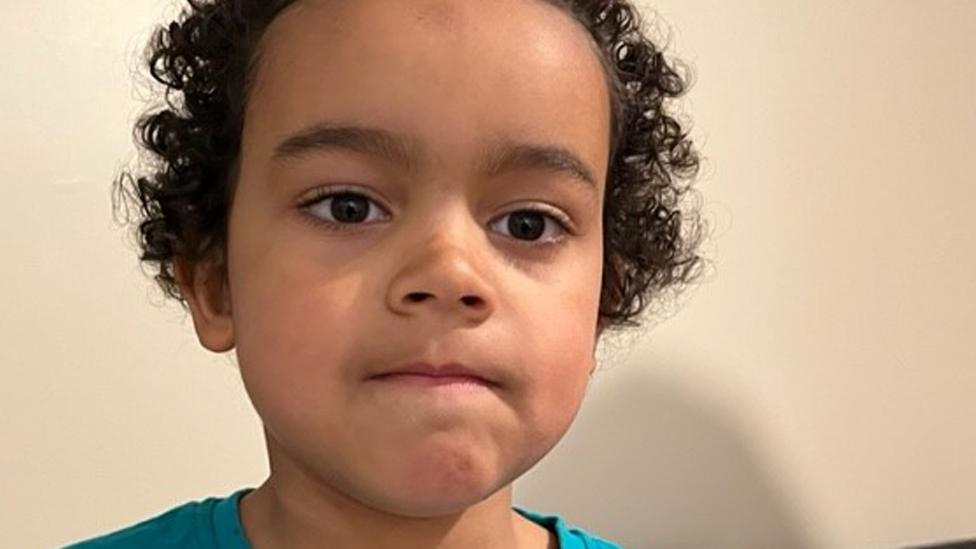South Norfolk: Homelessness is 'hidden' in rural areas, council leader says
- Published
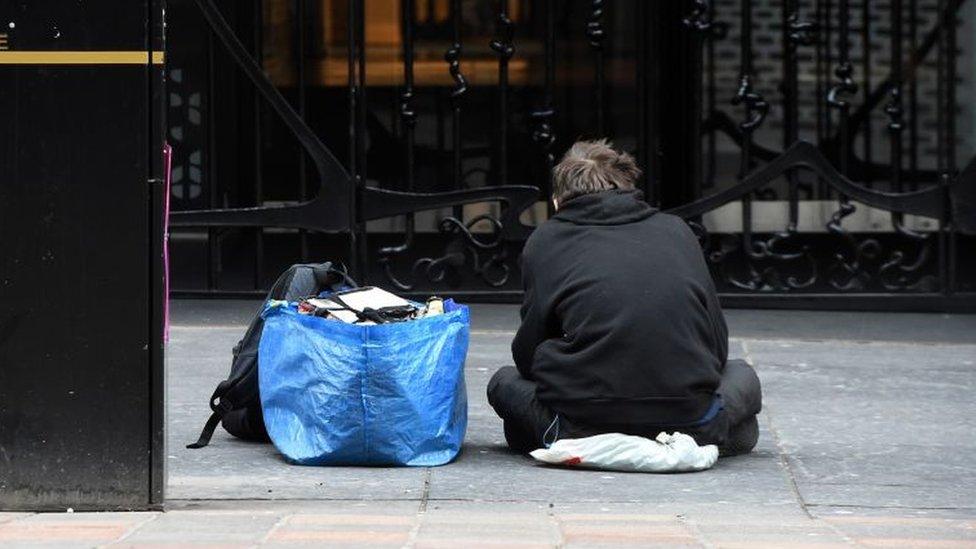
The growing issue of homelessness is more hidden in rural areas, Councillor Fuller said
Homelessness in rural areas is "hidden away" with authorities having to "work harder to fix it", a councillor claims.
John Fuller, leader of South Norfolk Council, said government money was often "quite rightly focused on the obvious areas in the cities".
Before the pandemic, he said, there were 30 people in temporary accommodation. There are 103 this year.
He said his council had bought a 26-room former care home to house homeless people in the borough.
Mr Fuller spoke to the BBC's The World Tonight after official figures revealed the number of people living in temporary accommodation in England had hit a 25-year high.
Almost 105,000 households were in temporary accommodation, including more than 131,000 children, on 31 March this year - up 10% on the same day last year, according to the Department for Levelling Up, Housing and Communities.
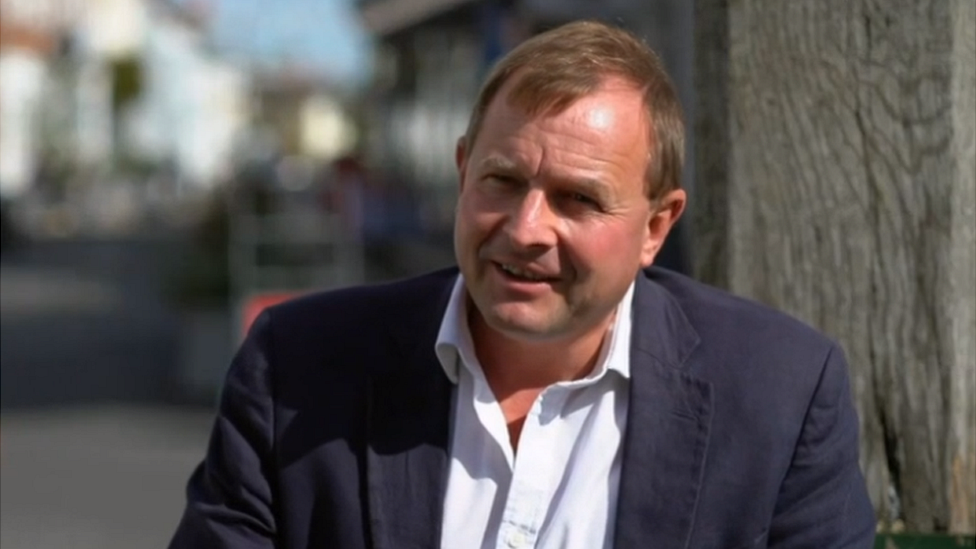
South Norfolk Council leader John Fuller said homelessness was a "hidden" problem in rural communities
Mr Fuller, a Conservative, said the largest proportion of homeless people in South Norfolk were from private sector house evictions in which landlords were "probably... trying to anticipate the Renters Reform Act, external", which will give tenants greater rights.
"South Norfolk is a rural area - we're not a seaside town, we're not a city centre," he said.
"We've got huge problems, not just with street homelessness but hidden homelessness - ours is hidden away and more diffuse so it's harder to identify so we have to work harder to fix it.
"And because it's less obvious we don't always have all the national support that you might hope for from the government, which is quite rightly focused on the obvious areas in the cities.
"We will have to fend for ourselves."
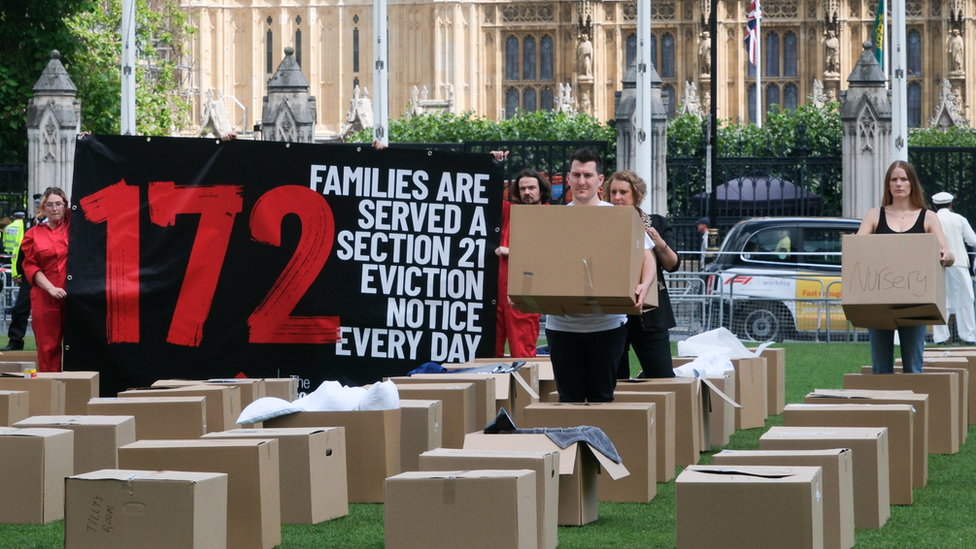
The charity Shelter highlighted the issue of homeless families at Westminster on 19 July
Mr Fuller said the authority was working to prevent homelessness, by lending deposits for private sector rental, as well as providing guarantor services.
He said council staff also attended doctors' surgeries so that "rather than prescribe pills and medicines, we have a wide range of interventions, including debt advice".
The former care home will take between 50 and 70 residents "so we don't rely on bed and breakfasts and private hotels," he added.
The council also has an "Early Help Collaborative Hub, external" involving a number of agencies, including social care teams, children's services and the police, to identify people in need early.
"If someone can stand on their own two feet and start to make their own way - with us acting as guarantor - they start to earn a place in society," Councillor Fuller added.
A government official told the BBC it had "given £2bn over three years to help local authorities tackle homelessness and rough sleeping, targeted to areas where it is needed most", and that it is "determined to prevent homelessness before it occurs."

Find BBC News: East of England on Facebook, external and Instagram, external. If you have a story suggestion email eastofenglandnews@bbc.co.uk or get in touch via WhatsApp on 0800 169 1830
- Published25 July 2023
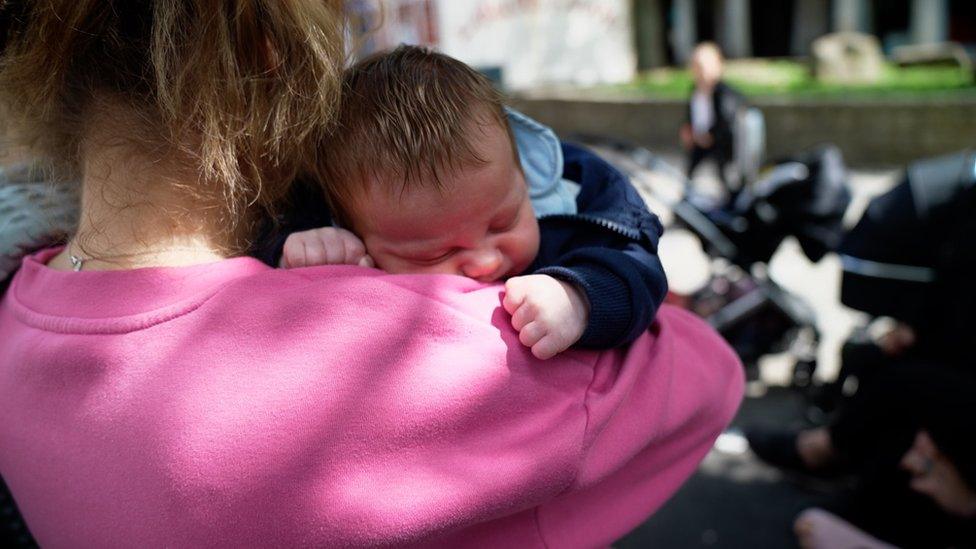
- Published11 March 2023
